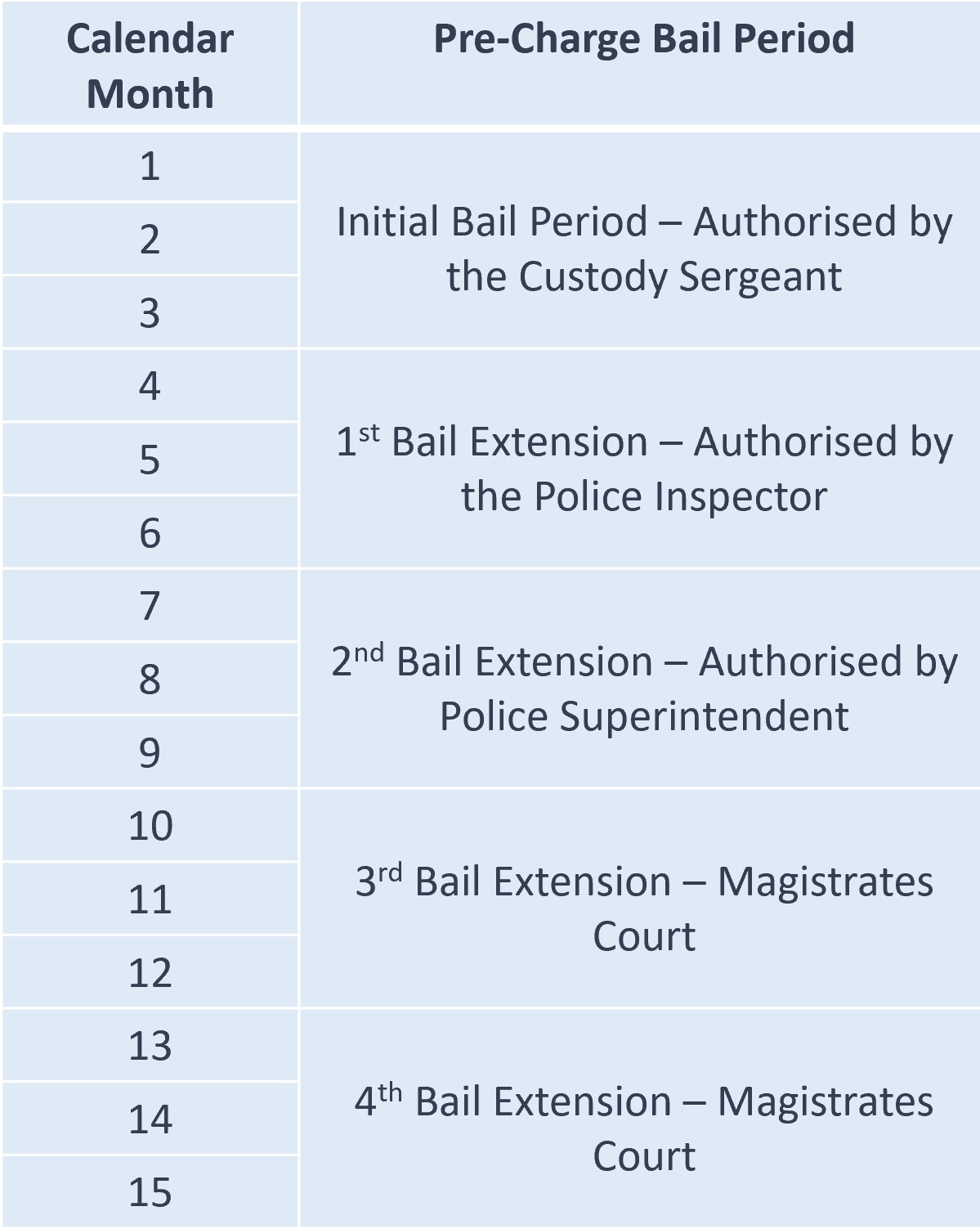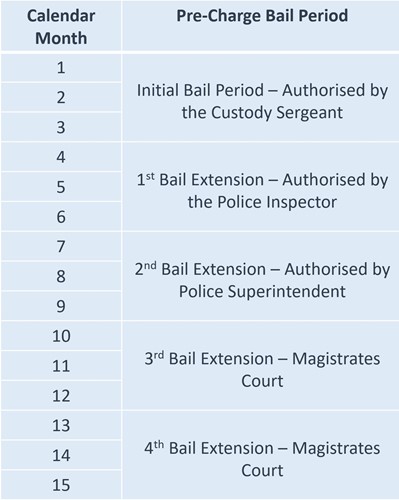Being restricted by bail conditions can be extremely frustrating and can have an impact on your job, family arrangements and your ability to go about your daily life freely. Bail conditions can be imposed before and after a charging decision being made, reasons for bail depend on the circumstances of the case and of the individual accused.
Pre-charge bail
Pre charge bail is placed on a suspect before a charging decision is made and where they are being investigated for a criminal offence. Being on bail prior to any charge allows a suspect to be released from custody rather than being detained.
Being on police bail means that the suspect will be required to attend back at the police station on a certain date at a certain time following their release. The custody sergeant should only impose bail upon release from custody where it is deemed to be necessary and proportionate to do so (s50A PACE), having regard to any representations made by the suspect or their legal representative.
The following reasons for imposing bail are usually provided by police:
- the risk of further offences being committed by the suspect
- the risk that the suspect will fail to surrender to custody
- to prevent the suspect being a risk to the public
- to prevent the suspect from interfering with witnesses or,
- for the suspects own protection
There is no set list of police bail conditions but alleged offences of a sexual nature often include a residency condition, a non-contact condition, a curfew, or a do not attend a certain area condition. The bail conditions that the police impose will vary on a case by case basis.
Indecent images of children and police bail
At PCD Solicitors we are very familiar in dealing with the common conditions that aim to restrict a persons contact with children in circumstances where the allegations relate to possessing, making or distributing indecent images of children - all of which are non contact offences. We are experts in challenging such restrictions in these types of cases and have an outstanding success rate in doing so, in turn enabling families to continue their lives and child arrangements as normally as possible.
Bail time limits
Following a change to legislation in October 2022 the police can now bail a suspect initially for a period of three months to allow them to investigate the alleged offence. Pre October 2022 this was 28 days.
Should there be a further period of time required for the police to investigate the 3 month period can be extended by an Inspector for a time period of up to six months in the first instance, and then nine months by a Superintendent if required.
Any further extensions taking a persons bail beyond nine months must be made by the Magistrates Court upon application by the police. The police must inform you or your solicitor of their intention to do this and give you an opportunity to respond to the application.


There is no legislative limit to how many times the Magistrates can extend a suspects bail. This does not mean that the police can keep a suspect on bail forever, investigations must be seen to be being conducted diligently and expeditiously for both the suspect and the complainant.
When can an Inspector authorise police bail?
When considering a bail extension the Inspector must be satisfied they have reasonable grounds for:
- Suspecting the suspect is guilty of the offence
- Believing that further time is required for the decision to charge the suspect is needed, or further time to investigate is required.
- Believing that the decision whether to charge the suspect with the offence is being dealt with diligently and expeditiously, or that the investigation is being dealt with diligently and expeditiously.
- Believing that the suspect being on bail is necessary and proportionate.
Prior to a decision being made the Inspector should provide the suspect or the legal representative to make representations, and if they are submitted they must be considered.
The Second bail extension is authorised by the Superintendent, they follow the same process as detailed above.
If we are acting for you we will ensure your bail is firstly lawful, that the conditions are necessary and proportionate.
The difference between pre-charge bail and being released under investigation
The main difference between a suspect being released on pre-charge bail and being released under investigation is that they do not have a specific date and time to return to the police station. The police cannot attach conditions to a person released under investigation.
How we can help
At PCD Solicitors, we are experienced in dealing with matters at the pre-charge stage of a case. We pride ourselves on our ability to successfully challenge police bail conditions, and work to ensure our clients are treated fairly and with respect. If you are facing difficulties with police bail or an ongoing investigation contact us for a non judgemental and confidential chat. You can call our friendly team on 0151 705 8488 or complete an online enquiry form.